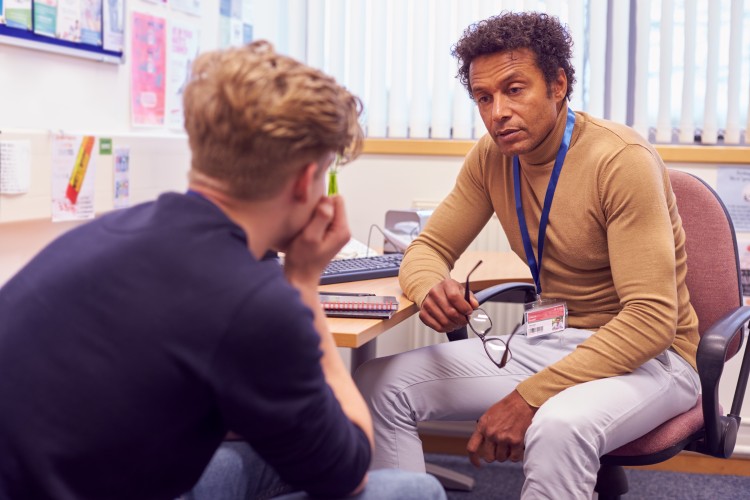Children impacted by cancer have unique and specific needs. Nearly 25% of adults with cancer have children under the age of 18 living in the household. A parent’s serious illness presents both challenges and opportunities for classroom teachers and other school staff.
During last week’s 10th Annual Cancer in the Classroom Symposium hosted by Gilda’s Club Westchester, Jaime Aker, LMSW, Children, Teens and Families Manager, presented ways to support students impacted by cancer with the dozens of local teachers, guidance counselors, nurses, social workers, and school staff in attendance. “The hope is that you leave today with many effective tools, an increased knowledge and a greater understanding of the best ways to support children who are impacted by cancer.”
She explained how educators can be very helpful to parents by observing their child in the school setting. “Teachers can be an important resource for parents in monitoring how their child is coping with the illness.”
Here’s an overview of Aker’s informative presentation:
The Basics to Keep in Mind When Working with a Student:
Time: When checking in with a child about their family member’s illness, time the conversation appropriately. Try to avoid bringing up tough topics when a child is hungry, stressed or about to transition to a new activity. Instead, wait until after lunch and recess when they have had time to eat and exert energy.
Language: It is important to speak with the family first to find out what language they are using at home, in order to be consistent. In most cases, using simple and straightforward language, even using the words “cancer” and “death,” will eliminate any confusion and misinformation. Avoid the use of euphemisms that children may not understand (i.e., “sick,” “passed away”).
Less is more: Provide only enough information as necessary, and then allow them to ask questions as needed. We want to minimize overwhelming the student as much as possible.
Allow for a range of emotions: Model and validate their feelings, as they are all equally important. Provide opportunities such as playtime and art that can serve as emotional outlets.
Support: Students often want to be treated as normally as possible when faced with a family member’s cancer diagnosis or death. But, you can still check-in and let them know what supports are available.
What You Can Do to Help:
- Set boundaries – Maintain the student’s usual routine when possible. Setting boundaries at school communicates safety and predictability to a child; providing a sense of stability during what can be an otherwise unpredictable time.
- Practice flexibility – A child impacted by cancer may experience exhaustion, poor concentration, and irritability. There may be times when special consideration needs to be given when asking the child to perform certain tasks. Allow the child breaks if you see they are getting overwhelmed and allow for reasonable flexibility if appropriate.
- School Support Team – Help the child and family identify at least one school professional who the child can speak with or go to when they need a “break.” Look to the child to see who they already have a naturally close relationship. Fostering relationships within the school can greatly help children feel less alone.
When a school community is impacted by cancer, it can be overwhelming. Remember the strengths your school can offer a child, their family, and the community. Teachers can offer safety, joy, and support to a child during some of the most difficult times in their lives.
Gilda’s Club Westchester offers Gilda’s CLASS, a comprehensive resource designed to bring support and education directly to schools. There is no fee for this program as it is part of Gilda’s Club Westchester’s community outreach program.
Gilda’s CLASS provides students, families, and faculty with education and support through interactive classroom presentations, consultations, lectures, and workshops, as well as an annual symposium designed to reduce anxiety and dispel misconceptions about cancer. Licensed mental health professionals at Gilda’s Club Westchester can provide school professionals with direct social and emotional support when a student or coworker is impacted by cancer in their school or district. Specially trained GCW staff are also available to speak to parents whose children are impacted by cancer to address their concerns, ranging from how to talk to their children about cancer, to how children at different developmental stages understand cancer.
For more information, contact Children, Teens and Families Manager at Gilda’s Club Westchester Jaime Aker, LMSW, [email protected], 914-644-8844 (x104).

